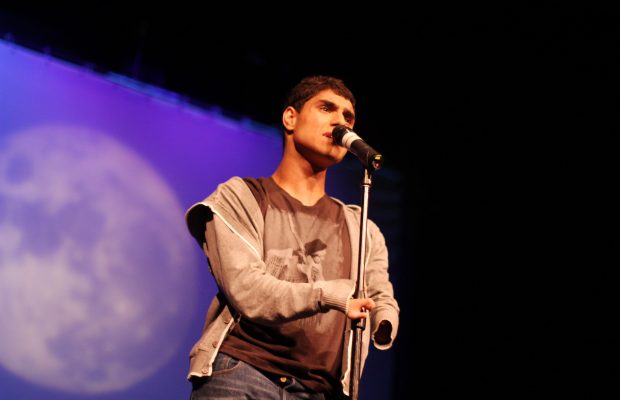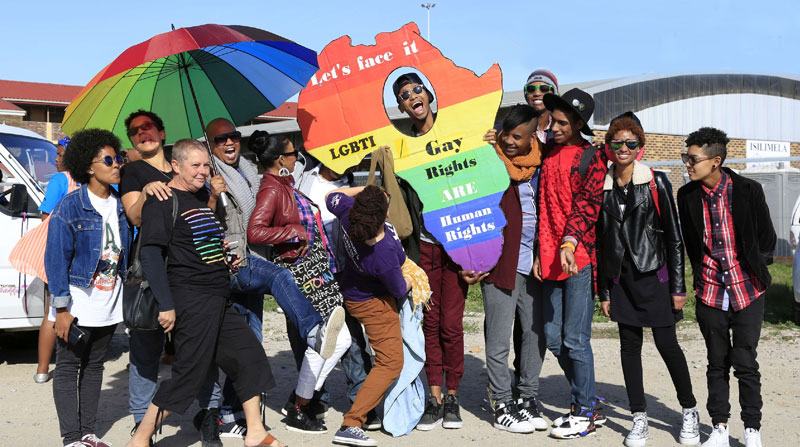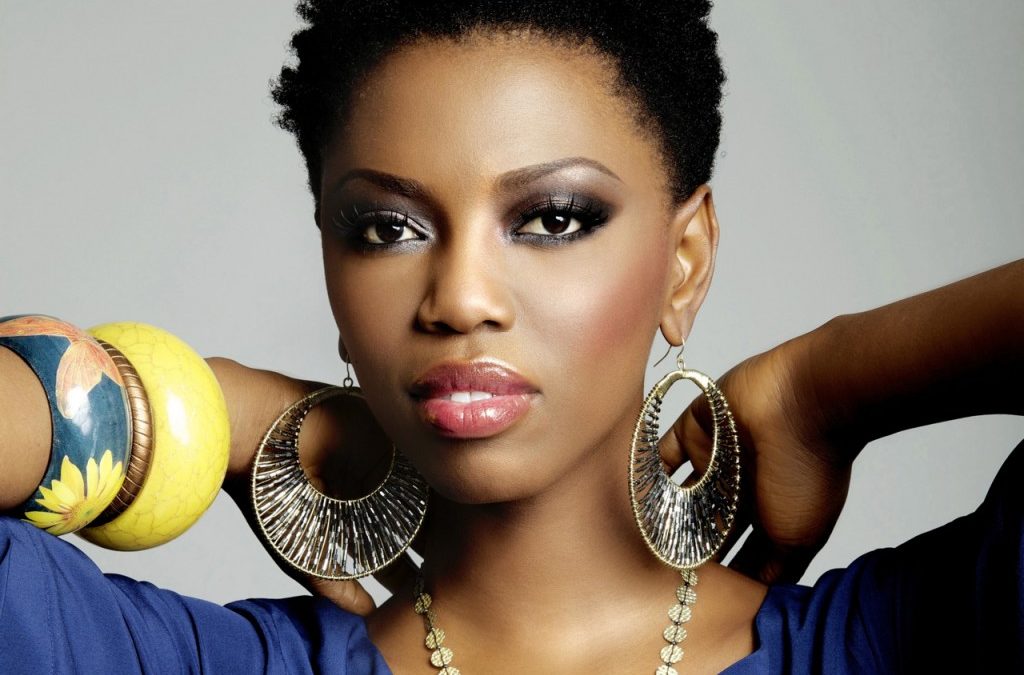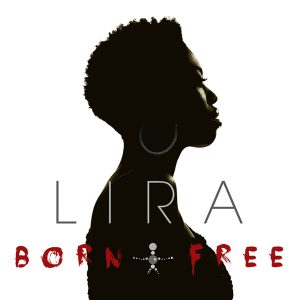
He was abandoned in a shoebox as a baby in a war torn country. 17 years later, he brings the judges (and the world) to tears
September 22, 2016
1 000 faces campaign
October 11, 2016
[dc]She might be a superstar in South Africa, but Lira’s perspective on her recent career moves demonstrate she’s far from complacent. Life, she says, is all a matter of perspective. It can be difficult or joyous, depending on how you react to a situation.[/dc]
Determined to develop what she calls a “sustainable career”, the singer knew she had to start making moves towards the United States. But her record company was unwilling to fund the adventure. Undaunted, she decided she would become an independent artist and pay for her own tour of the country.
“I was frustrated with the limitations imposed on me,” she told The Big Issue. “I was determined to live my dream without hurting or harming anyone or anything. And if that meant doing it for myself, so be it.”
Her decisive action echoes what she said in L’Uomo Vogue’s “Re-Branding Africa” issue back in 2012: “We’re a young democracy, and we’re accustomed to an image of Africa as a place that expects outside help. We must instead take stock of our situation, become autonomous, find our identity and independence.”
Becoming an independent and autonomous artist, financially responsible not just for herself but for her musicians and crew, set Lira off on a learning curve that hasn’t been easy. The journey was documented in a reality-style ‘warts and all’ television show, which was picked up and broadcast by Fox, called Lira: Dreamchaser.
“I had to do my US tour smartly,” she says. “I took a limited crew. I ironed my clothes and did my own make-up. I had to pay for our airfares, our accommodation, our travel, our food… and I had to pay in rands. Financially, it was hard. We played in humble venues. But whenever it got really hard, I would tell myself, ‘Here I am touring the US; I am actually here and I’m doing it’.”
Her motto, she says, is ‘Do what you can with what you have where you are right now’. “I live by that,” she says. “My greatest secret to success is that I live positivity as a lifestyle. It’s my default setting!”
With six studio albums behind her (the latest, Born Free, is on her own label, Otarel Music) and the 2006 Lira Live In Concert offering, Lira has a pretty strong track record when it comes to managing her career and delivering the hits. Which is why she was no doubt selected to be one of the coaches on South Africa’s hit TV show, The Voice.

“What a beautiful experience,” she says. “There was no script. I could just be myself. For me it was an invitation to speak to my industry. I’d never had the opportunity to address fellow musicians and then this opportunity dropped into my lap.”
She was astounded at the depth of talent in South Africa, and believes shows such as The Voice don’t even scratch the surface, but also warned aspiring musicians that most times, big breaks don’t just drop into their laps like manna from heaven.
Which led to the obvious question: What does she think about SABC chief operating officer Hlaudi Motsoeneng’s decision to literally overnight institute a 90% local music quota on all the public broadcaster’s radio channels?
“It’s the right idea, but implementing it has to be long-term. Examples such as that of Australia show it can transform a country’s music industry, but that you do it over time. The industry needs to adapt, music needs to be properly produced for radio. It needs funding in place as it can cost around R30 000 to do one track in a studio. We must develop young artists professionally and it’s critical that we produce quality music. So while I appreciate the move, the way it is executed is important,” she says.
Lira has come in for some criticism from fellow artists, most recently the sister of Thandiswa Mazwai, Ntsiki Mazwai, who complained about Lira winning a South African Music Award for Best Female Vocalist in 2015, saying “awards are political and about who you are with” and “when you are with white people, black people will elevate you”.
It was a reference to Lira’s husband, Robin Kohl. At the time, Lira didn’t respond. But later, in an interview on radio station CliffCentral, she referred to the “frustration” when things are “not going right with your own life and you just need an outlet [to lash out].” And she added, “One artist said it quite vocally on Twitter for instance. She reckoned my white husband is why I am successful. We actually used to be friendly. I tried to feature her on a track once. But it’s cool‚ I know where it’s coming from. When it’s all really frustrating‚ you don’t really appreciate the amount of work that a person puts in.”
Lira has put the work in. As she says, she’s not an overnight success. And while she’s sold thousands of albums and performed to capacity crowds, savvy management has also ensured she’s won lucrative endorsement contracts, the most recent being the first female ambassador for whisky brand Johnnie Walker and a collaboration with Bobbi Brown cosmetics in South Africa.
Nevertheless, she believes South Africa needs more patrons of the arts, as in Europe. “It would make life easier if I had more financial support for my music,” she says. “I have put in place saving mechanisms (my advice to young musicians is to start saving immediately; always try and put a little bit away). I’ve approached moneyed people for support, but they seem to think that once you’ve ‘made it’ and you’re a success, you no longer need support. So I’ve become savvy with money. “I do a lot with a little. Money equals freedom and for me, it also helps to give my work a stamp of quality,” she says. “I treat myself as a business. I treat myself as a corporate entity and put to use what I’ve learnt from corporates to sustain my business.”
Lira agrees South Africa is not in a great place right now, and says black people carry a huge amount of “pain and anger”. But, she said, “Holding on to anger imprisons you. You’re not going to empower yourself by being angry. In fact, you’re giving others power over you.
Her “big issue” she says, is youth empowerment. The youth must take charge of their lives, she says, look forward and find solutions to South Africa’s issues.
“We need to be the solution,” she says. “We need to ask, ‘What are we doing with our freedom?’ We need to take back our power. We need to use our freedom, get an education, and change mindsets. We need to be willing to open up, share resources and knowledge with each other.”
She believes South Africa’s youth will do so and doesn’t hold out much hope for what she terms “the older generation” who, she says, want revenge and are “hungry for blood”.
“On a collective basis, the youth will find long-term solutions,” she says. “Adversity and problems often lead to the best kind of thinking, problem-solving. And our generation can use that. I’m an eternal optimist!”
Concluding the interview on a lighter note, Lira says if she was stranded on a desert island she’d like to be there with her husband Robin, Oprah Winfrey and Richard Branson. She would prefer having Amy Winehouse CDs, a compilation of Nigerian dance music and Stevie Wonder’s Songs in the Key of Life. And as long as she had lots of fruit, vegetables and green leaves, she would be happy.




